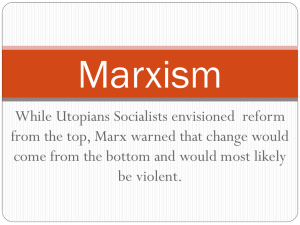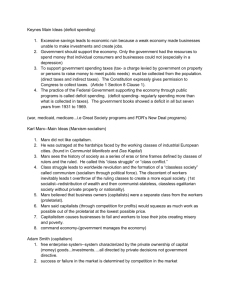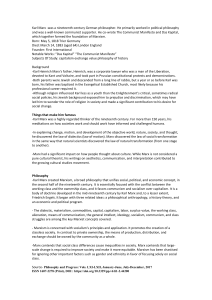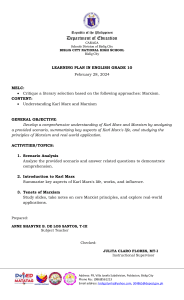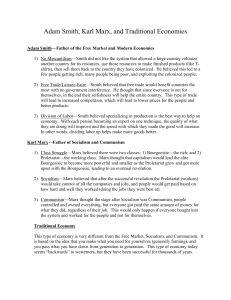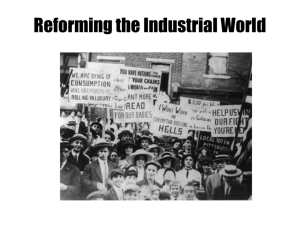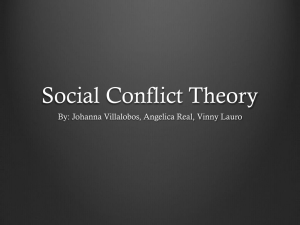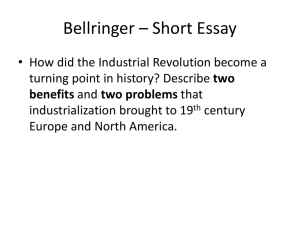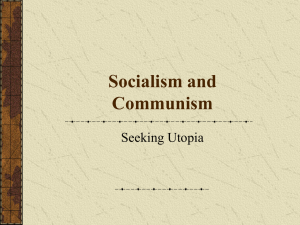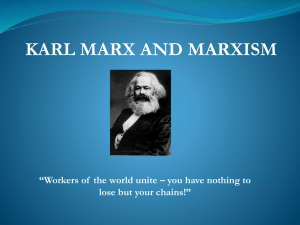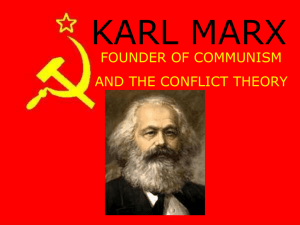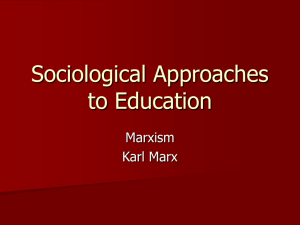Ideologies
advertisement
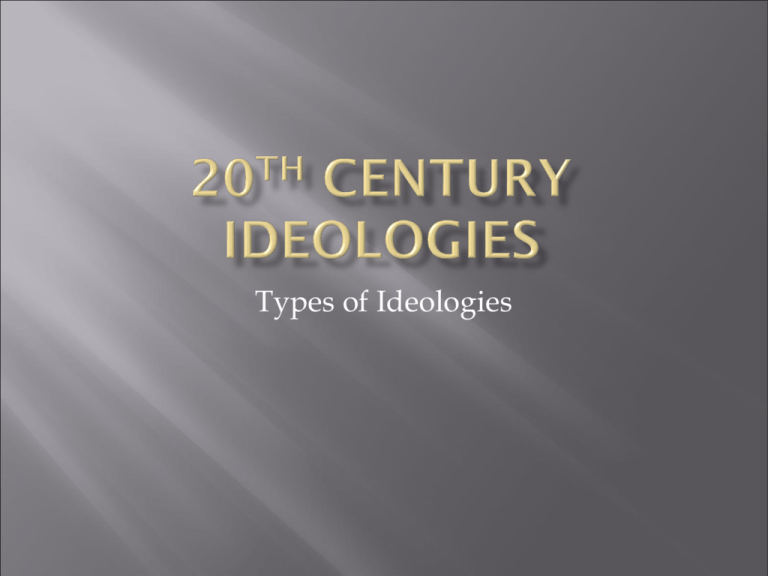
Types of Ideologies Stresses individual rights and freedom of choice Includes the idea of decentralized government but one that does promote personal freedom and reduce inequities Faith in human progress Respect for sovereignty of the reasoning individual John Locke and John Stuart Mill believed human beings are equal and independent. They believed that humans have certain inalienable rights such as the right to life, liberty, equality and ownership of property. Belief that individuals and society have a moral responsibility to respect past traditions, customs and habits. When individuals and society wish to make reforms, they we must be slow and gradual. Belief that society should structured in a hierarchical fashion. Edmund Burke believed society should be structured in a hierarchy with those best suited to leadership at the top, because people do not have equal abilities. Government should be chosen by a limited electorate with special rights, responsibilities, and privileges. Stability must be achieved through law and order and the maintenance of customs and traditions that bind society together. Associated with the writings of Karl Marx. Based on the concepts of class struggle. Where Marxism focused on violent revolution to create a classless society, Socialism focused on peaceful social change in the interest of the working class. Belief that resources should be controlled by the public for the benefit of everyone in society. Robert Owen believed that the harshness of life under capitalism corrupted human nature. Believed that education was the key to a humane society. Belief that everyone should be beneficially employed. Believed that living and working conditions needed to improve for all. Radical form of socialism According to Karl Marx, the only way to overthrow capitalism was through a class struggle between the proletariat and the bourgeoisie—which would then bring about significant change to society. Belief that society should be classless. The state should direct the economy to achieve economic equality for all citizens. Karl Marx and Friedrich Engles elaborated on the ideas of Marxism in the Communist Manifesto. Ideas such as abolition of private property, centralization of factories and free education for all were promoted. Vladimir Lenin expanded on Marx’s ideas for the purpose of carrying out the Russian Revolution and establishing a dictatorship of the proletariat in the USSR.





